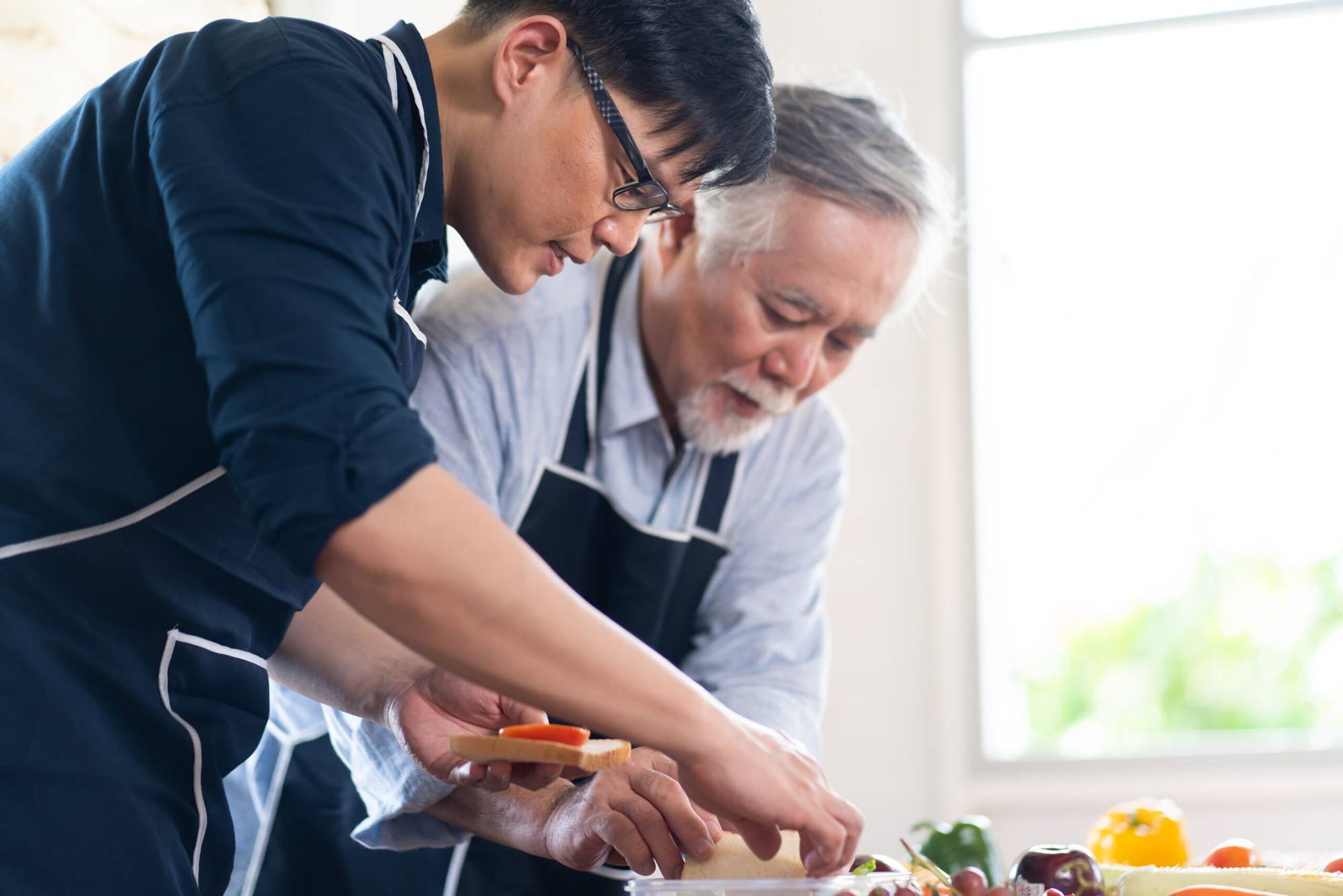Cooking Up Calm in a Time of Crisis
Preparing family meals during the pandemic conjures up memories of helping his mom, who had multiple sclerosis
"What's for supper tonight?" my 24-year-old son asked as I stepped out of my car, returning from work. That was when the threat of a virus did not exist, and we were free to move about, meet our friends, shake hands, hug. Back then, sharing the last meal of the day was routine.

For the past several months, we've all been relegated to being at home, and with the holidays near, I've immersed myself in something I can control there: feeding my family. Every day, the late afternoon talk centers around our menu.
For dinner that night, I dipped thinly-sliced chicken breasts into milk and egg batter, coated them with coarsely ground breadcrumbs mixed with chopped garlic and onion, and carefully arranged the strips in a glass Pyrex baking dish, as the upbeat sounds of Gloria Estefan drifted from the speakers.
Feeling the blast of hot air when I opened the oven door brought me back to learning my way around a kitchen.
My mother was diagnosed with progressive multiple sclerosis when I was in my last year of high school. After churning out keypunch cards at a Hartford, Conn. insurance company for eight hours, she came home and prepared a full meal for our family of four, unsteady and holding on to the stove while stirring steaming sauce pans — lids chattering — atop every burner.
Learning My Mom's Cooking Secrets
At the end of the day, my mother focused on prepping for mealtimes.
As her condition progressed, she was no longer able to prop herself next to her cutting board. She taught me the secrets rooted in preparing Polish pierogi and stuffed cabbage, handed down by her mother. I became more of a presence in the kitchen, my way of helping our family in a desperate situation.
"Make sure the potato pancakes don't burn," she said from her chair, as the tiny round disks sizzled in the large cast iron frying pan. "They should be crispy around the edges. Then carefully scoop them up with the spatula and arrange them between the sheets of towels on the baking rack to soak up the grease."
I followed instructions. We became partners in getting meals to the table, and I continued learning her cooking secrets.
I became more of a presence in the kitchen, my way of helping our family in a desperate situation.
My father started to spend more time in the kitchen when he retired. Growing up in Poland, he'd watch his own mother cook for large weddings. He was soon whipping up my mother's prized recipes as well as experimenting with his own. On Sunday afternoons, we'd travel to nearby farms and cart home freshly-picked tomatoes, cucumbers and green beans.
When my mother lost control of her arms and legs, she moved to a long-term care facility. My father visited every day. But the frenetic cooking didn't stop.
"What did you bring today?" the front desk nurse would ask Dad when he showed up, holding warm tightly-sealed plastic containers filled with chicken stock, meat and vegetables.
Visiting my mom, I'd watch the six o'clock news with her as I sat beside her bed. She'd laugh as we tried to solve "Wheel of Fortune" puzzles. Her smile broadened when she asked what my son and daughter were learning in math and English.
The conversation always turned to what my father cooked for her that day. How he'd sneak in a couple of boneless pork chops, or angel wings sprinkled with powdered sugar he'd picked up at the local Polish bakery.
I'd make her favorite cabbage soup, thick with sauerkraut and chickpeas. The familiar aroma consumed her room as I lifted each spoonful to her lips.
Making Supper Brings Normalcy
Now, with the virus continuing, the dozens of handwritten recipe cards filed in my own small wooden box — many committed to memory — have more significance as we spend the days home together.
"Stir the onions into the beef," I said to my daughter recently, as we combined the makings of our family meatloaf. These family recipes will live on, as my own kids concoct their beloved macaroni and cheese, chicken tenderloins and breaded pork chops.
On cool autumn days, I donned my chef's hat outdoors. Rolling my 20-year-old red Weber grill out of the garage, the sounds and scents of sizzling marinated chicken strips drifted into the house, where the rest of our crew came together to fill drink glasses and arrange plates, knives and forks around our table.
These recipes nourish not only our souls, but the connection we have.
Keeping our pantry stocked with vegetables has been challenging in these times of social distancing. I seek fresh ingredients in the stillness of early morning, looking more like a burglar sporting a hat and face mask than a dad buying groceries during hours for older customers.
For my mother and father, cooking familiar dishes provided comfort in times of recessions and illness. Now my family and I find contentment in our current climate of uncertainty and fear. Something as simple as our mashed potatoes with slightly burnt caramelized onions taste the same today as in the past generation.
The question "What's for supper tonight?" has more meaning now. Not only am I sustaining my family, as I always have, but I'm bringing them back, one meal at a time, to a calmer place.
My mother and father are gone now. I imagine them smiling as we all bump into each other in our kitchen, reaching for spices, whisking together our creations and calling out instructions.
These recipes nourish not only our souls, but also the connection we have. The simple act of making supper has become our lifeline to normalcy.


